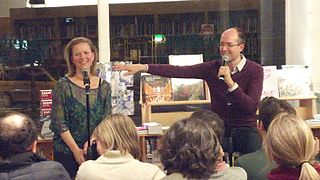A Quote by Jonathan Kozol
I don't know if anything I write will endure, but I do try to write it as a narrative that will not only challenge but also entice the reader into the lives of children.
Related Quotes
Loving your subject, you will write about it with the spontaneity and enthusiasm that will transmit itself to your reader. Loving your reader, you will respect him and want to please him. You will not write down to him. You will take infinite pains with your work. You will write well. And if you write well, you will get published.
You have to write a book because you believe it has helped you, because you believe it has helped others personally and you are dying to share with it others because you know it will add value to their lives. You write it for them like a gift. You don't want anything from them. You don't want them to do anything for you. You don't even care if they all share the book with their friends, they don't all have to buy them. You're just dying to share this idea with people. Your challenge is to write it in a way that is compelling, enjoyable to read so that they will get the idea.
I will write in words of fire. I will write them on your skin. I will write about desire. Write beginnings, write of sin. You’re the book I love the best, your skin only holds my truth, you will be a palimpsest lines of age rewriting youth. You will not burn upon the pyre. Or be buried on the shelf. You’re my letter to desire: And you’ll never read yourself. I will trace each word and comma As the final dusk descends, You’re my tale of dreams and drama, Let us find out how it ends.
Do not write to impress others. Authors who write to impress people have difficulty remaining true to themselves. A better path is to write what pleases you and pray that there are others like you. Your first and most important reader is you. If you write a book that pleases you, at least you know one person will like it.
I do think the challenge, in a way for me, is to write a narrative film and when you finish watching it you feel like it's a collage. You tell the narrative, you tell the story, but you feel like you've created this tapestry. But it also has a shape, a story. So I think there's a middle ground that I try to strike... away from where everyone else seems ready to go, which is, setup, payoff. You know, He's afraid of water, oh, and at the end he's swimming in water - oh, my God. I hate that stuff.






































